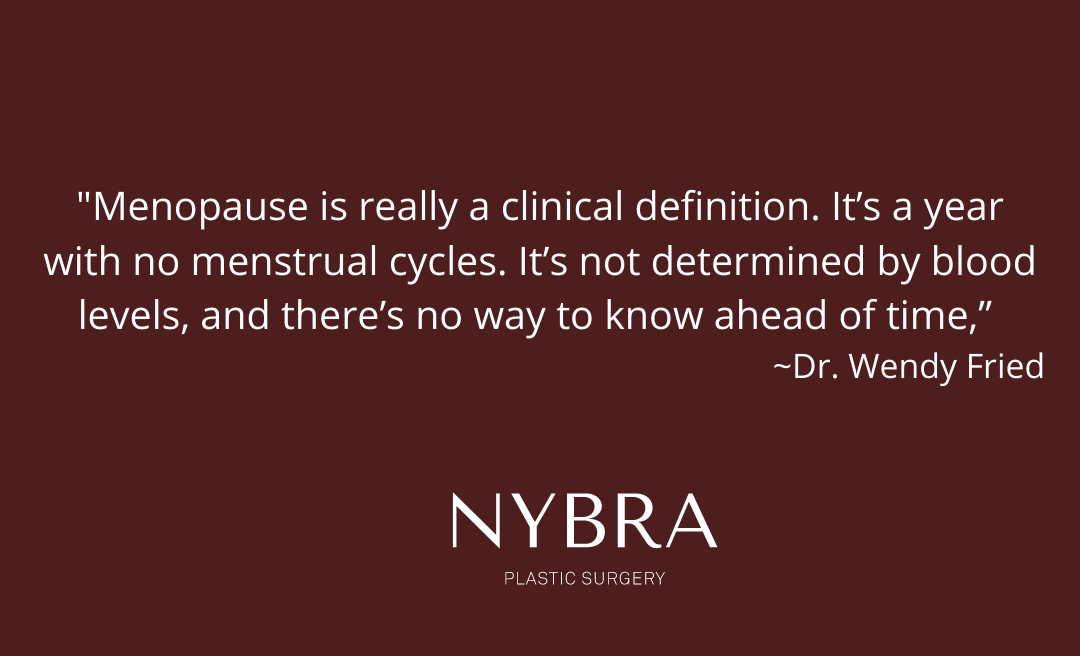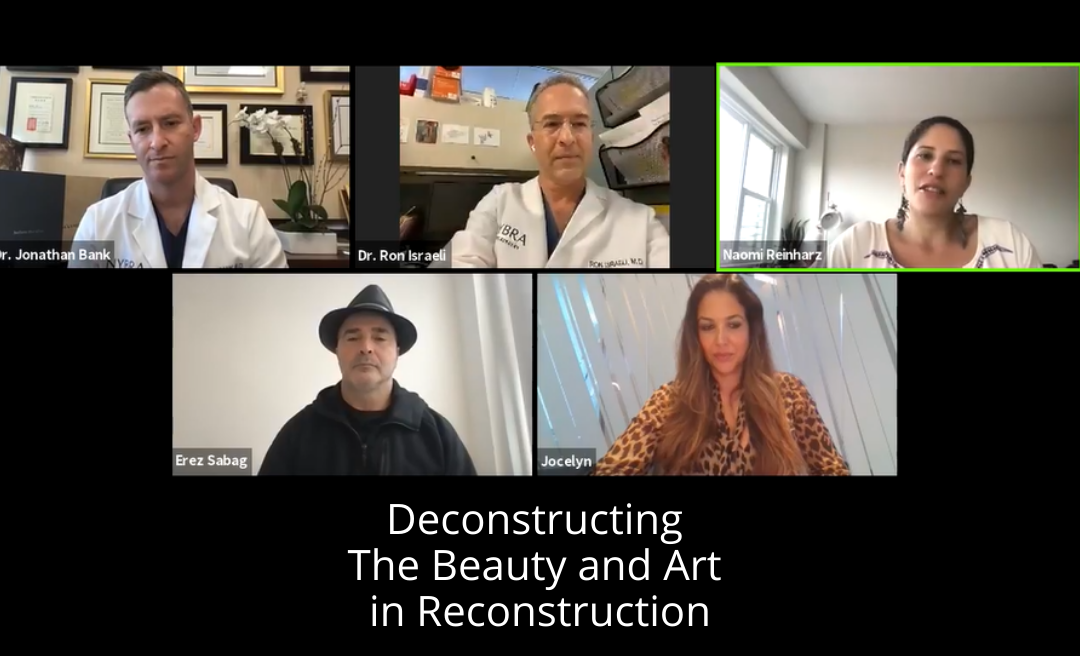Managing Menopause with Dr. Wendy Fried
December 11, 2021
“Menopause is really a clinical definition. It’s a year with no menstrual cycles. It’s not determined by blood levels, and there’s no way to know ahead of time,” Dr. Wendy Fried explained in last month’s aptly titled Be Informed Lecture, “Are You Hot?”
Dr. Fried gave attendees of an overview of what to expect from menopause and how to cope with the bodily and life changes that come with it. Read on for a few highlights from the lecture, and watch the whole thing, here!
Menopause can begin at any point over a wide range of ages—all of which come with their own, specific concerns.
According to Dr. Fried, early menopause is when a patient stops menstruating before the age of 55. After 55 is normal or late onset. Both types of onset come with medical concerns to monitor. Later onset may seem more desirable on the surface, since it’s associated with less osteoporosis and heart disease and staves off potentially long-term hot flashes just a bit longer. However, it is tied to more breast, uterine and ovarian cancer than early menopause. Both come with potential cholesterol issues and cognitive changes, including word-finding issues.
“There’s no free lunch,” she said.
Most people only have hot flashes for two or three years; others continue to experience them indefinitely.
“We don’t know why some people are done with menopause within two to three years, and that’s 85% of women.”
Unfortunately, about 15% of patients continue to have flashes into their seventies and eighties. Much like onset timing, there is no way to predict whether this will happen.
Some patients can manage their symptoms through behavior alone.
Dr. Fried said that patients should begin by assessing what types of symptoms they were experiencing and sharing those symptoms with their doctor.
“If there are multiple issues, we try to use the least aggressive therapy,” she said.
Patients suffering from hot flashes often benefit from lifestyle modifications. Dressing in layers can improve comfort and applying ice packs to the palms of the hands, the back of the neck, and other pressure points when a hot flash begins can make a big difference in both the duration and intensity of the flash. She also said that stress reduction plays a role.
“People tend to notice if they physically are stressed, emotional stress, they’re having an emotional day at work, they flash more.”
Bone loss should not be ignored.
Early menopause can cause bone loss, which is more dangerous than it may seem. While some patients are more concerned about the risks and side effects associated with bone density medications, it’s important to know that bone loss can impact longevity.
“With osteoporosis, we tend to be pretty aggressive, because one in ten women die of complications of a hip fracture.”
Bone density medications do have risks and side effects. Patients with osteopenia, a less severe type of bone loss, are sometimes treated with physical therapy, dietary calcium, vitamin supplementation, and weight bearing exercises. Dr. Fried encouraged patients who were candidates for medication to speak to their doctors and really consider the whole picture.
“Everything in life is a risk-benefit ratio.”
Deconstructing the Beauty and Art in Reconstruction
“Something that’s been through hardship or sustained adversity can be even more beautiful,” Dr. Jonathan Bank said early in a webinar called “Deconstructing the Beauty…
